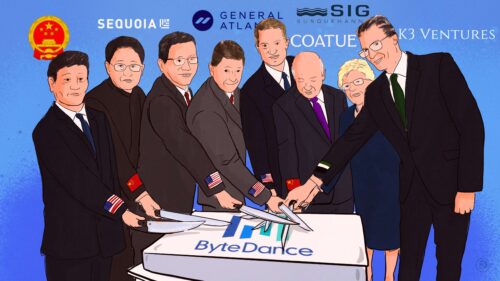TikTok and WeChat both in limbo in U.S. after Trump ‘blessing’ and court ruling
A day before TikTok and WeChat were due to be taken off app stores in the U.S., both apps were saved from the ban — TikTok by Trump’s “blessing” of a restructuring deal, and WeChat by a free speech lawsuit. The future of both apps is hard to predict.

Last Friday, the Trump administration announced that it would ban downloads of TikTok and WeChat starting September 20, and even gradually implement freezes on any servers or technical services based in the U.S. that help make WeChat and TikTok operate smoothly for U.S. users.
Neither app ban actually happened, leaving the fate of both apps in the American market in limbo.
WeChat protected in free speech case
For WeChat, the development is straightforward: A federal judge in California issued a 22-page decision on September 19 granting a preliminary injunction to halt the Trump administration’s ban. The judge found free-speech-based arguments from the U.S. WeChat Users Alliance to be convincing.
- WeChat users have to wait for this legal process to play out before they know the fate of the app, and it could take a while — “several legal points still need to be hashed out,” the judge acknowledged, per the Wall Street Journal, and “the government has the opportunity to file an appeal to her ruling to put the issue before another judge.”
- WeChat appears to be unaffected in the meantime, but its future in the American market is uncertain.
TikTok gets Trump’s “blessing,” but little agreement on details
For TikTok, no one seems to agree on what is happening. On September 19, President Trump gave his “blessing” to a deal in principle between TikTok, Oracle, and Walmart. The Commerce Department said it would delay its ban on downloads of TikTok until September 27.
TikTok said that the deal would involve setting up a new U.S.-based entity called TikTok Global, and Oracle and Walmart said they would have 12.5% and 7.5% stakes in this company, respectively. As “initially described,” the Wall Street Journal reports, these two small investments would allow the Trump administration to say that TikTok Global has majority American ownership “because ByteDance is about 40%-owned by U.S. investors.”
Since then, however, there has been a stream of contradictory and confusing messages from all sides. The Financial Times reports on three major areas of confusion:
- Who will own how much? TikTok’s parent company, ByteDance, said today (in Chinese) that TikTok Global would be a “100% owned subsidiary of ByteDance,” but Oracle executive vice-president Ken Glueck said that ByteDance would have “no ownership in TikTok Global.”
- Who will control the technology? ByteDance’s statement claims that the “current scheme does not involve any transfer of algorithms or technologies,” but Oracle and Walmart have said that “all the TikTok technology will be in possession of TikTok Global.”
- Who will be on the board? ByteDance says that its existing board members, including its CEO, Zhāng Yīmíng 张一鸣, will be on the board of TikTok Global along with the CEO of Walmart. However, this would make a board of six members, and Oracle and Walmart have stated that there will be a “five-member board of directors.”
Depending on the exact resolution to those three points and more, the deal could quickly become anathema to either Washington or Beijing, or both.
- Referring to Oracle and Walmart, President Trump said today that “if we find that they don’t have total control, then we’re not going to approve the deal.”
- If Beijing interprets the deal as selling TikTok’s algorithm, which it designated as a sensitive technology last month, it could seek to block the transaction. A tweet today by Hú Xījìn 胡锡进, the mouth-frothing editor of the Global Times tabloid, seemed to reiterate this threat.
- It is unclear if the mix of equity ownership and board management decisions will please either side. Caixin points out: “The arrangement that would see the new company’s majority equity controlled by a Chinese owner while management control rested in the hands of U.S. executives is similar to a reverse situation used by most Chinese companies that list in the U.S. Such arrangements allow for diversified ownership of companies from sensitive sectors, while keeping management control squarely in the hands of local executives.”
What if the TikTok Global deal succeeds?
First of all, it would not solve the root of the problem, writes Graham Webster in the MIT Technology Review. The U.S. would continue to have an “app economy that collects and monetizes as much data as companies can manage,” with little protection of privacy or oversight on where that data goes — including countless cases where data managed by non-Chinese companies ends up on Chinese servers.
Second, if the deal ends up going through, then American investors will get a windfall as a new entity reportedly worth $60 billion or more is created in the U.S.
However, China could retaliate, and this weekend, Beijing revived a threat it has made for more than a year to make an “unreliable entities list” to counter the U.S. Commerce Department’s expansive use of its “entity list” export restrictions. This would most directly be a response to the U.S. government’s chokehold on supplies to Huawei, but could easily be used as retribution for moves against ByteDance and WeChat’s owner, Tencent, as well.






